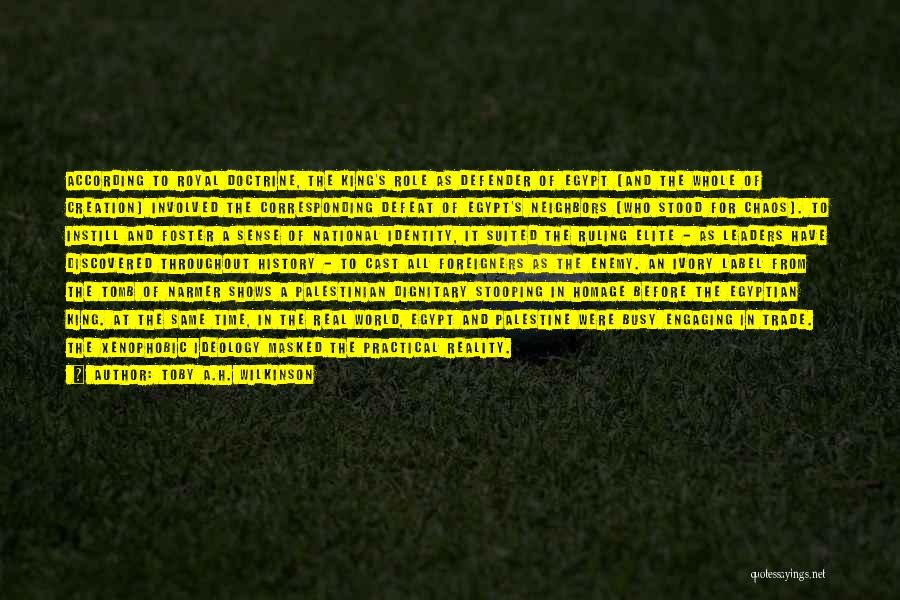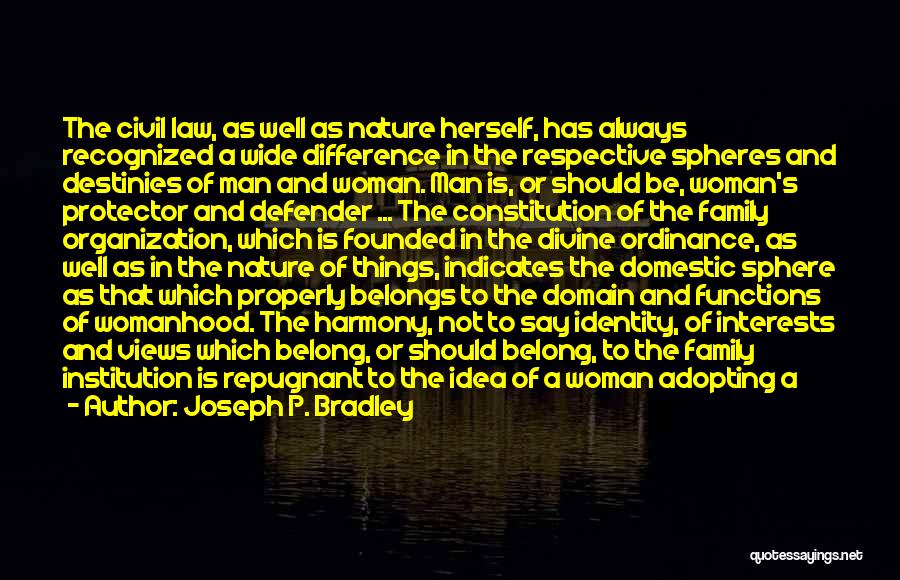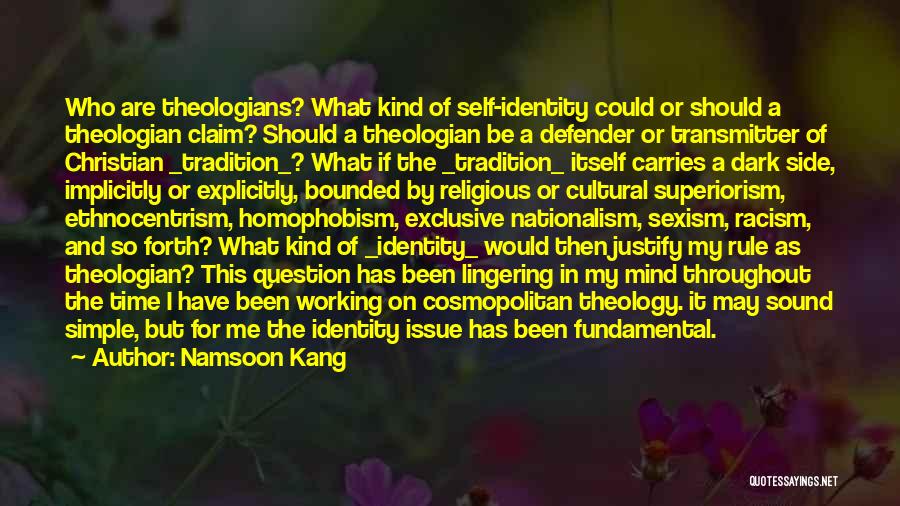One Identity Defender Quotes & Sayings
Enjoy reading and share 3 famous quotes about One Identity Defender with everyone.
Top One Identity Defender Quotes

According to royal doctrine, the king's role as defender of Egypt (and the whole of creation) involved the corresponding defeat of Egypt's neighbors (who stood for chaos). To instill and foster a sense of national identity, it suited the ruling elite - as leaders have discovered throughout history - to cast all foreigners as the enemy. An ivory label from the tomb of Narmer shows a Palestinian dignitary stooping in homage before the Egyptian king. At the same time, in the real world, Egypt and Palestine were busy engaging in trade. The xenophobic ideology masked the practical reality. — Toby A.H. Wilkinson

The civil law, as well as nature herself, has always recognized a wide difference in the respective spheres and destinies of man and woman. Man is, or should be, woman's protector and defender ... The constitution of the family organization, which is founded in the divine ordinance, as well as in the nature of things, indicates the domestic sphere as that which properly belongs to the domain and functions of womanhood. The harmony, not to say identity, of interests and views which belong, or should belong, to the family institution is repugnant to the idea of a woman adopting a distinct and independent career from that of her husband ... The paramount destiny and mission of women are to fulfil the noble and benign offices of wife and mother. This is the law of the Creator. 1872 — Joseph P. Bradley

Who are theologians? What kind of self-identity could or should a theologian claim? Should a theologian be a defender or transmitter of Christian _tradition_? What if the _tradition_ itself carries a dark side, implicitly or explicitly, bounded by religious or cultural superiorism, ethnocentrism, homophobism, exclusive nationalism, sexism, racism, and so forth? What kind of _identity_ would then justify my rule as theologian? This question has been lingering in my mind throughout the time I have been working on cosmopolitan theology. it may sound simple, but for me the identity issue has been fundamental. — Namsoon Kang





